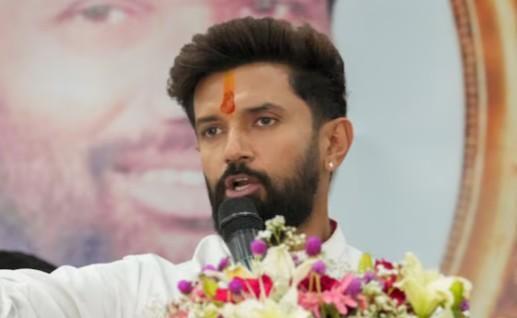
Will Ensure Inclusive Development: Paswan on Caste Census Decision
In a recent development that has sent shockwaves across the country, the Centre has decided to include caste data in the upcoming Census of India. This move has been widely welcomed by many, including Lok Janshakti Party (Ram Vilas) chief Chirag Paswan. Paswan, who has been a vocal advocate for caste census, has hailed the government’s decision as a major step towards ensuring inclusive development in India.
In a tweet, Paswan expressed his gratitude to the Centre for taking this step, saying, “Many rumors were spread about me and the Centre regarding caste census, but today’s decision is an answer to all those rumors. This will bring a big change in the direction of inclusive development of India.”
Paswan’s statement has sparked widespread debate and discussion on social media, with many hailing the decision as a significant step towards promoting social justice and equality in India. The caste system has long been a contentious issue in India, with many arguing that it perpetuates social and economic inequality.
The decision to include caste data in the census is seen as a major victory for social justice activists and proponents of caste census, who have been demanding this for years. The move is expected to provide valuable insights into the prevalence of caste-based discrimination and inequality in India, and will likely inform policy decisions aimed at addressing these issues.
Paswan’s party, the Lok Janshakti Party, has a significant presence in Bihar and other parts of eastern India, where caste-based politics has long played a significant role. Paswan’s support for caste census is seen as a key factor in his party’s appeal to voters from marginalized communities.
The decision to include caste data in the census is also seen as a significant step towards addressing the issue of social and economic inequality in India. The country’s caste system has long been criticized for perpetuating inequality and discrimination, and has been a major obstacle to social and economic development.
Paswan’s statement has also sparked debate on the potential implications of the caste census for Indian society. Some have argued that the move could lead to greater social and economic exclusion for certain communities, while others have hailed it as a major step towards greater social justice and equality.
Despite these debates, it is clear that the decision to include caste data in the census is a major step forward for India’s social justice movement. The move is expected to provide valuable insights into the prevalence of caste-based discrimination and inequality in India, and will likely inform policy decisions aimed at addressing these issues.
In conclusion, Paswan’s statement has sparked widespread debate and discussion on the potential implications of the caste census for Indian society. While some have raised concerns about the potential implications of the move, it is clear that it is a major step forward for India’s social justice movement. The decision to include caste data in the census is expected to provide valuable insights into the prevalence of caste-based discrimination and inequality in India, and will likely inform policy decisions aimed at addressing these issues.
As Paswan himself has said, the move will bring a “big change in the direction of inclusive development of India”. It remains to be seen what impact this decision will have on Indian society, but one thing is clear – it is a major step forward for social justice and equality in the country.
News Source:
https://x.com/iChiragPaswan/status/1917537325040521231






